What's New?
The PoD Roundtable
moderated by Bill Shoemaker
What’s New? is an email roundtable that draws together persons of diverse backgrounds to discuss the issues shaping jazz and constituent experimental musics in the early 21st Century.
The panelists for this roundtable are former students of Steve Lacy at New England Conservatory. They include:
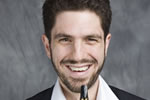 Daniel Blake, a Brooklyn-based composer and saxophonist. He has performed and recorded with such diverse luminaries as Anthony Braxton, Danilo Perez, and Esperanza Spalding. His compositions have been performed by Duo Diorama, redfish bluefish ensemble, and The Cygnus Ensemble, and other new music ensembles. Blake co-curates the “Defacto Series,” a Brooklyn concert series dedicated to experimental multi-media and improvised music. He currently plays with Lukas Ligeti, Peter Evans, and Julian Lage. Blake is currently a Ph.D. candidate at the City University of New York, and serves as adjunct lecturer in music history at Brooklyn College. For more about Blake, visit: www.danielblake.com.
Daniel Blake, a Brooklyn-based composer and saxophonist. He has performed and recorded with such diverse luminaries as Anthony Braxton, Danilo Perez, and Esperanza Spalding. His compositions have been performed by Duo Diorama, redfish bluefish ensemble, and The Cygnus Ensemble, and other new music ensembles. Blake co-curates the “Defacto Series,” a Brooklyn concert series dedicated to experimental multi-media and improvised music. He currently plays with Lukas Ligeti, Peter Evans, and Julian Lage. Blake is currently a Ph.D. candidate at the City University of New York, and serves as adjunct lecturer in music history at Brooklyn College. For more about Blake, visit: www.danielblake.com.
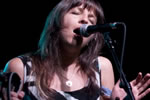 Monika Heidemann, a Brooklyn-based singer and bassist. She has released two albums of original compositions and those of Steve Lacy. Heidemann has performed in the U.S. and Europe at the helm of the Monika H Band since 2005. She has worked consistently with Sam Sadigursky's Words Project and is currently the lead singer and bassist for the pop band Xylos. Information and clips of Heidemann can be found at: www.myspace.com/monikahband.
Monika Heidemann, a Brooklyn-based singer and bassist. She has released two albums of original compositions and those of Steve Lacy. Heidemann has performed in the U.S. and Europe at the helm of the Monika H Band since 2005. She has worked consistently with Sam Sadigursky's Words Project and is currently the lead singer and bassist for the pop band Xylos. Information and clips of Heidemann can be found at: www.myspace.com/monikahband.
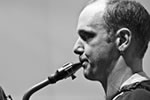 Josh Sinton, a Brooklyn-based composer and multi-instrumentalist. Sinton has performed with a wide spectrum of ensembles, including Darcy James Argue’s Secret Society, Burnt Sugar, and Harris Eisenstadt’s Guewel. He leads the Steve Lacy repertory band, Ideal Bread (whose latest CD is reviewed in this issue’s Moment’s Notice) and holus-Bolus; he also performs and writes for the collaborative trio Teenage Burnout. He also manages the Douglass Street Music Collective. For additional information, consult: www.joshsinton.com.
Josh Sinton, a Brooklyn-based composer and multi-instrumentalist. Sinton has performed with a wide spectrum of ensembles, including Darcy James Argue’s Secret Society, Burnt Sugar, and Harris Eisenstadt’s Guewel. He leads the Steve Lacy repertory band, Ideal Bread (whose latest CD is reviewed in this issue’s Moment’s Notice) and holus-Bolus; he also performs and writes for the collaborative trio Teenage Burnout. He also manages the Douglass Street Music Collective. For additional information, consult: www.joshsinton.com.
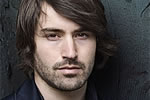 Dan Tepfer, a New York-based pianist and composer. In addition to leading two trio albums and improvising a solo set for the DIZ imprint, Tepfer’s discography includes Duos with Lee (Sunnyside), an acclaimed encounter with Lee Konitz. He took first prize and audience prize at the 2006 Montreux Jazz Festival Solo Piano Competition, first prize at the 2006 East Coast Jazz Festival Competition, and first prize at the 2007 competition of the American Pianists Association. Tepfer has traveled to Azerbaijan, Georgia and the Czech Republic as a Cultural Envoy of the U.S. State Department, “The View from Orohena,” a concerto for wind symphony and improvising piano, premiered in Prague in May. Another current project is “Goldberg Variations/Variations,” in which he performs each of Bach’s original variations, and then improvises on each. For more on Tepfer, go to: www.dantepfer.com.
Dan Tepfer, a New York-based pianist and composer. In addition to leading two trio albums and improvising a solo set for the DIZ imprint, Tepfer’s discography includes Duos with Lee (Sunnyside), an acclaimed encounter with Lee Konitz. He took first prize and audience prize at the 2006 Montreux Jazz Festival Solo Piano Competition, first prize at the 2006 East Coast Jazz Festival Competition, and first prize at the 2007 competition of the American Pianists Association. Tepfer has traveled to Azerbaijan, Georgia and the Czech Republic as a Cultural Envoy of the U.S. State Department, “The View from Orohena,” a concerto for wind symphony and improvising piano, premiered in Prague in May. Another current project is “Goldberg Variations/Variations,” in which he performs each of Bach’s original variations, and then improvises on each. For more on Tepfer, go to: www.dantepfer.com.
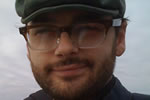 Jeremy Udden, a Brooklyn-based composer, and saxophonist. Udden is the leader of Plainville, whose eponymous CD was issued in 2009. His torchsongs project released a self-titled CD in 2006 and has performed throughout the US, China and Scandinavia. He has also toured Africa, Europe and the US as a member of Either/Orchestra. He is the winner of the 2003 Fish-Middleton Jazz Competition in Washington, D.C. and a 2005 ASCAP Young Composer Award finalist. For more information, visit: www.jeremyudden.com.
Jeremy Udden, a Brooklyn-based composer, and saxophonist. Udden is the leader of Plainville, whose eponymous CD was issued in 2009. His torchsongs project released a self-titled CD in 2006 and has performed throughout the US, China and Scandinavia. He has also toured Africa, Europe and the US as a member of Either/Orchestra. He is the winner of the 2003 Fish-Middleton Jazz Competition in Washington, D.C. and a 2005 ASCAP Young Composer Award finalist. For more information, visit: www.jeremyudden.com.
****
Bill Shoemaker: Students in conservatory jazz programs have to balance the need to learn the literature and the need to develop one's own voice at the same time. Where were you in this process when you first encountered Steve Lacy as a teacher at NEC?
Josh Sinton: In regards to learning “the literature,” I had discovered that I really enjoyed the skill building that was entailed (strengthening rhythmic skills, transcribing, ear training, etc.). In regards to my “voice,” while I recognized that I had a distinctive approach, I didn’t value that ability. This put me in a strange zone where I was working as hard as I could to increase my skills, but without any sense that it would lead to any peer recognition (if I didn’t value my artistic contributions then why on earth should my peers value or care about them?). In short, I was in a small, somewhat lonely, but oddly comforting place. Steve was one of the first teachers I encountered who told me I “had something.” This was the beginning of my self-education.
Jeremy Udden: I was 23, and a second year grad-student at NEC. I had done my undergrad at NEC as well, and taken a year off in-between the two degrees to play. I was still studying and practicing a lot when I met Steve - always fundamental things – the jazz "literature". But I was also touring and recording with some original projects, so the beginning of my voice was there, but it was yet to be developed (is it ever fully developed?). I would say that the major influences in my musical life were in place when I met Steve, and then he quickly went to the top of that list and expanded my pallet into new directions.
Dan Blake: I had just returned from a semester in Paris where I had briefly met Steve. In Europe I was practicing in the woods (at Steve’s suggestion), playing on the streets, and generally vagabonding about trying to “find myself”. I didn’t really know what I wanted to sound like, and the perceived necessity to find anything, including a voice, was terrifying to me. The best I could do was look for a way out of the chord changes and all the patterns that I grew up hearing (“the tradition”), but I just kept spinning my wheels with halfway imitations and getting frustrated. In my first actual lesson with Steve, I played and he told me we were going to “pull the blinds up” on my sound. It was the first time anyone had even insinuated that there might be something behind those blinds! He slapped me out of my confusion and I was left, and remain, mystified at this possibility.
Dan Tepfer: Growing up in Paris, France, I improvised constantly but apart from a few scattered lessons, I was mainly self-taught in jazz (I did take classical lessons, which is how I learned piano technique). Because no-one told me how to improvise, it felt very much like my own thing, and as a result I was very passionate about it. When I came to NEC, I was a fairly developed jazz player, with the advantages and drawbacks that being self-taught bring: I felt like I had full ownership of the things I knew, but also started to realize that there were plenty of things that I didn't know (mainly, to use your term, the literature). So my two years at NEC where in many ways about filling in the holes in my knowledge. In terms of developing a personal voice, because I had spent so much time, from a young age, making my own things up (or at least, thinking I was making them up, when in fact I was unconsciously absorbing elements of the music I listened to), I've always felt that the voice was there and that what I really needed was to develop the facility to express it as clearly as possible. In many ways, my interactions with Steve at NEC didn't fit into this pattern: his music always felt deeply intuitive to me -- it didn't feel, with his music, that I had as many holes to fill. I just played, taking into account Steve's suggestions as to how best to use the material of his composition in the improvisation, and it somehow all seemed to make sense.
Monika Heidemann: I was ending my first year as a grad student at NEC for Jazz Voice. I had really just begun composing music at the time and the whole process seemed totally foreign to me on many levels. I knew from people's reactions to my music that I was apparently doing something a little out of the ordinary for "jazz voice" so perhaps this is what drew me to Lacy. I had never heard of him before coming to NEC and some of my peers turned me on to his songs. When I found out that he would be teaching there for the next semester I knew I'd have to meet him and study with him and ask him about how he has worked with the voice. Very few non-vocalists coming out of the Jazz genre dare to write music for the voice or really succeed at creating a proper compositional springboard for the voice.
Shoemaker: Keeping in mind that even a rather casual conversation with Steve could be a learning experience, two things stand out for me in terms of how Steve, in a broad sense of the term, taught: he had a reservoir of aphoristic phrases -- like, "jazz is song and dance" -- that could be brought to bear in any number of situations; and, he had exercises and methods that designed to get one outside of jazz conventions, like the "magic order" of pitches described in Findings, which he devised to avoid what were, for him, boring chromaticism and harmonic cycles. Were your experiences similar?
Sinton: What struck me about Steve’s teaching was the utter simplicity of his instructions. He’d always say or demonstrate exactly what the moment called for. So his aphorisms (“Don’t’ move so much while you play on the stand; you’re wasting energy,” was one in particular that I remember) were often surrounded by a penumbra of silence. This usually had the effect of getting me to really lean in and listen to what he said. What he said was almost always brief and succinct. Likewise, his ‘exercises’ (I prefer thinking of them as solitaire games) could seem practically naïve at first glance. He was having me work on Thelonious Monk’s tune “Skippy” which I was really struggling with. I asked Steve the best way to approach blowing on the changes (every two beats the chord changes and it’s an up-tempo number) and he paused while staring at the sheet of music. Then he looked at me and said “Just solo using the roots and fifths of the chords.” I thought he was crazy at the time, but it turned out to be one of the most sensibly practical approaches to this particular rhythmic-harmonic issue. Steve’s body of information is one that can lay dormant for years in my ear before it achieves any recognizable clarity.
Blake: Boredom was always something to be avoided as far as Steve was concerned. It made a huge impact on me when he said practicing should never be boring…what a possibility! I had spent my whole life practicing in such a way that I would race through “warm-ups” to practice the “real” stuff, but Steve showed me that warm-ups are the essence of the practice. Now I am continually challenged to find a way to make every moment with the horn count, and what a gift that can be. I have since developed my own exercises and etudes, which Steve encouraged me to do, as he told me that the “magic order” could also become a pattern just like any other. Steve helped me to realize the hidden potential in just playing two tones, back and forth, and approaching my instrument with curiosity and a keen attention that has (no exaggeration) enriched my overall life!
Tepfer: Steve was a true artist in the sense that the bottom line, relative to any esthetic judgment, was whether something felt meaningful or not. One of my favorite quotes of his, which continues to be a touchstone for me, is "There's nothing more boring than being right". When I say it was meaning he was after, it wasn't objective truth, it was subjective truth, which of course is pretty much the only kind of truth that's important in art. For someone like me, who grew up with one foot in art and at least half a foot in science, it was so helpful, such a release, to have things put so clearly: art is about what we like, not about what's correct from some Cartesian standpoint. Steve knew where his meaning was, and he was incredible at gathering meaningful things from all over. It's telling, I think, that the scanned copy of hand-written Monk aphorisms ("make the drummer sound good", "play the melody", etc.) that's been widely circulated on the internet in the last couple years, is in Steve's hand. He knew the value of the philosophical one-liner. After all, he wrote a whole song cycle ("The Way") based on Lao Tzu's wisdoms. I remember playing through that cycle with Steve and thinking: Steve talks kind of like Lao Tzu! The exercises and methods that he had developed served the same purpose: to make sure that the meaning was there, that we were truly present in each note. In the end, I feel like it was more about finding something that forced you to pay attention to what you were doing, rather than about the specifics of the system itself.
Udden: Along the lines of what Josh said, the simplicity of his instruction was striking. I think he had most of us play our major scales when we started, and I'm sure most of us darted up and down our scales at 16th-note speed, wondering why Steve would even ask to hear them. But he would then show you that he never played his major scales faster than he could walk, and he would literally walk around the room while doing it. He would point out that if you do it in this way from the bottom of the horn to the top; you get a new sequence of whole and half-step intervals for each key, which changes your perception of keys on the horn completely. Steve was about changing your point of view, in order to unlock a door into new areas of your own imagination. I remember in a clinic he was talking about playing low B to low C for hours on end, and after a while, that minor 2nd interval felt like it was enormous! I tried it, and suddenly my range felt infinite! These little games can make you feel like you're picking up the instrument for the first time, and the possibilities are endless. The majority of jazz improvisation involves scalar melodies and eighth-note phrasing, and Steve was one of the true pioneers that broke free from those conventions.
Heidemann: Steve and I didn't do any technical exercises as I was a vocalist and studied with him for compositional purposes. We spoke about using texts and words and uncovering the/a natural melody within them... the melody that the words wanted to sing or were already singing. Since he used already written texts to set to music, finding this was mandatory to let the personality of the poem shine strongly (which they do in his music). His approach, thought, and use of the voice seemed to strictly be to interpret text or words, not so much as an instrument that improvised. He let the instruments take that role. His ideas were always so stream-lined, simple and clear in what he decided to write down....maybe just a bass line and melody at times, if that. Writing like this really asks a lot of the players. He forces you to find the spirit of it because there are not chord changes or specifically allocated lines to follow. This method of writing music is completely outside the "jazz convention".
Shoemaker: When most people talk about influences in jazz, they’re often talking about usage. I think real influence takes longer to take hold, and doesn’t always manifest in obvious ways. When did you realize that you had been influenced by Steve in this deeper way?
Blake: For me, what you call “usage” has been an essential stepping stone in finding my way through the maze of possibilities in improvised music. I find a certain nobility in shamelessly ripping off the techniques of the artists I love, as long as I’m willing to move on when it’s time. I share your thought that there is a distinction to be made between “usage” and a deeper connection we can feel with someone’s artistic presence, which goes far beyond musical techniques and even their instrument. Indeed, with Steve I unconsciously began adopting his body language, verbal mannerisms, and needless to say I copied as many of his soprano saxophone techniques as I could. I began writing suites of art songs, playing Monk tunes, and adopted every aspect of Steve’s practice regimen I gleaned from our lessons. It was total immersion, and in hindsight it all happened quite naturally, and so it took until Steve’s passing for me to realize that if I could let this influence go for awhile, I could also mourn his passing and in effect say goodbye to a dear mentor. I am only now (six years later) getting back to his music again and I am pleased that I can love it simply as a fan again. Steve was always a fan of the cooking metaphor: Perhaps my most important lesson here is not to over-cook something…now I can simply enjoy the meal!
Sinton: Influence from the point of view of the observer may be equivalent to usage, but from the perspective of an active student it is more akin to possession. When I met Steve, I'm pretty sure I didn't want anything from him beyond a chance to play some duos and hear some stories about jazz musicians. But, from my first encounter, he completely baffled me. That is, I found him very charismatic, but for the life of me, I couldn't figure out what made him that way. So that might count as his first 'influence' on me. I wanted to get that thing he had. I wanted to possess the same thing that made him so compelling. That search was informative but pretty fruitless. At this point, I think a deeper influence he's had is a certain kind of detachment. At a round-table discussion sponsored by my school's Career Services Center, Steve said the most remarkable thing. He said, "No one ever asked me to do this." The implications being that if no one asked you to do it then: a.) why are you doing it? (you better come up with a reason) b.) no one cares if you do it, so you're FREE to do whatever you want. It's only in the past 10 months that I've finally begun digesting this.
Udden: I agree with Dan, there's definitely got to be that initial period of shameless imitation - both musically and personally. That's how you learn and grow. I mean, Steve's entire persona was just infectious. You didn't have a chance around him! But you find your way. Steve dove into Monk and Webern as a way to get to his own true nature as a player. That was his interest and love and we eventually need to find our own path. He encouraged me to dive into Lennie Tristano and the Beatles and see what I could come up with. I never could sound like Steve anyway, so I also enjoyed trying to find my own voice on his compositions. In a way you should just blindly absorb as much music that interests you as you can, all the while chipping away at what will eventually be your own sound. I've realized over the past few years that Steve's influence on me was larger than the actual sound of his music. He got me thinking of myself as a player/composer and I started feeling a certain responsibility and confidence with that role. He showed me how other art forms as well as relationships, science, religion, sports, and every aspect of one's life influences his/her music. I've thought a lot about how the rhythm of his speech was so much like his playing, and how this is actually true of many of my friends that play. It's a sign of a great teacher. After six years I continue to learn from Steve.
Heidemann: Steve's influence has been subtle yet steady in my experiences. I agree that real influence doesn't always manifest in obvious ways, nor is it always obvious to see/hear as an outside listener because of the infinite ways people filter and process creative ideas. Steve's influence on me shows up in a striving for this clarity and confidence of musical ideas and in life in general that he possessed. In melodic writing, I find myself thinking intervalically (this seems rare for vocal music) which his music opened up for me. In writing songs, I constantly think about finding strong melodies within the lyrics. Melodies that support the lyrics, not the other way around; and transmitting soulful musical ideas as a platform for expression.
Tepfer: I can't say that I had the moment of realization that you describe; for me, influence has always been a gradual, mysterious process. I heard Steve play solo in Paris when I was growing up, and the image of him playing is indelible in my mind. I clearly remember him depressing the sustain pedal of a piano that was in the hall, and playing into it. The clarity of what he was trying to do – getting as deep as possible into the sound – and the amount of care and attention that he was willing to give to that pursuit were immediately obvious to me, even as a kid, and I remember coming home and playing one note on the piano over and over again, realizing how much of the sound I had previously been missing. That notion – of never taking sound for granted – has stayed with me ever since.